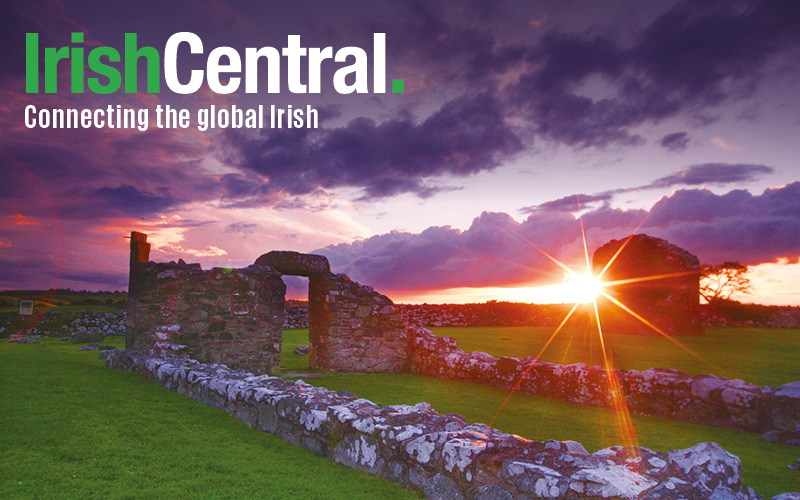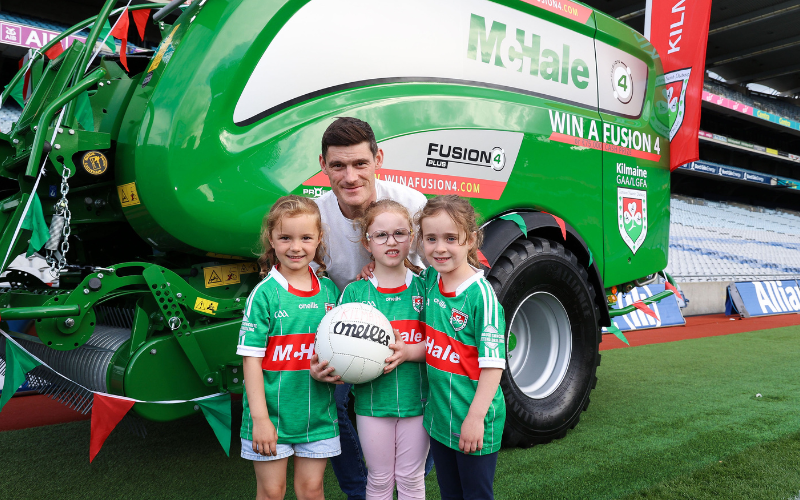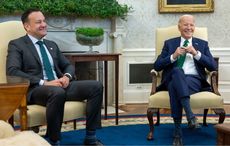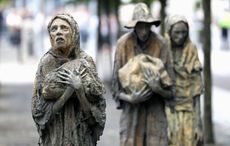The Irish people will elect the 32nd Dáil Éireann (lower house of Irish parliament) this Friday. The most recent polls have defied what was conventional wisdom just a few weeks ago and have produced some contradictory findings. On this last point, the figures in the polls released last weekend were virtually impossible to reconcile.
The lead party in the 31st Dáil, Fine Gael, has failed to cash in on a globally heralded economic recovery and has stagnated or sunk, rather than surged. Its percentage of support hovers in the high 20s. Fine Gael’s partner in government, the Labour Party, has not enhanced its own standing – most polls show it either mired in the high single digits or even a bit lower.
Fianna Fáil, on the other hand, has had a better than expected campaign and has improved 3-4 percentage points to approximately 22% in the polls. Sinn Féin has not benefitted to the extent some would have expected from the anger and frustration felt by so many whose economic situation and quality of life have not improved in the past five years; they remain stuck at or around 17% in the polls.
Instead, the beneficiaries – and hence the big story – have been independents and others from newly formed parties and groupings. Together, they enjoy the support of roughly 28% of the electorate.
Looking back on what has been a very short and equally volatile campaign and looking ahead to the scenarios this general election may engender, here are some takeaways.
Read more Irish politics stories here
First, Fine Gael made a serious error at the outset of the campaign by claiming too much credit for an economic recovery and by overstating how broadly it has been felt. Many Irish people, who have absorbed a series of significant pay cuts and tax increases since 2008 or so, believe that their hard work and sacrifice are responsible for the country’s firmer footing. They clearly resent the implication that politicians were the ones who did the heavy lifting.
Furthermore, Fine Gael’s “let’s keep the recovery going” slogan has been belied by a recent poll, not to mention a plethora of anecdotal evidence, revealing that more than half of the Irish people haven’t experienced good fortune. The party is said to have sought advice from consultants in the US and the UK, utilizing focus groups and availing of the latest in political intelligence.
Yet an unqualified emphasis on the recovery, as well as some incongruent messaging on fiscal prudence and substantial longer term tax cuts, indicates that the party’s main thinkers did not appropriately interpret the advice they received to account for historic and current Irish political realities. That experts managed to get it so wrong is, frankly, astonishing.
Second, the major debates of party leaders have had a real impact. Many observers are prone to argue that debates do not matter, unless there is a truly memorable positive or negative moment for a candidate. Although none of the three debates has produced any such moment, it is clear that Fianna Fáil leader Micheál Martin’s solid, confident performances have paid dividends for his party.
Conversely, Joan Burton’s lackluster outings in the first two debates certainly haven’t helped her Labour Party. She was much stronger in the final debate, however. It remains to be seen whether Labour will rebound in the last couple of days as a result.
Fine Gael has shrewdly downplayed expectations for its leader, Enda Kenny, arguing that debating is not his forte. He has exceeded these low expectations, but has probably converted few, if any, voters. While Gerry Adams has been somewhat better than he was in a debate for Sinn Féin before the 2011 general election, he has been largely ineffective and actually quite poor when responding to probing questions about the details of some of Sinn Féin’s proposals.
The television audiences for the debates have been enormous and each party’s standing in the polls, thus far, gels with the general consensus as to how the party leaders acquitted themselves in the debates. Indeed, the polls showed boosts for the minor parties and groupings whose leaders participated in the second debate and were well-received. In sum, people have tuned into debates and a lot of them are making up their minds based on what they see and hear.
Third, it has been said repeatedly as the campaign draws to a close that it is anybody’s guess who will win the final seat (or even the final two seats) in each of the 40 constituencies. The “all politics is local” maxim rings true again. Around the country, it is likely that the winner of these final seats will be determined on the basis of a vast array of local issues, or on the personalities of the candidates, or on constituency geography.
Despite an unprecedented amount of media coverage during this campaign, including many constituency debates on national media outlets, it is nearly impossible to reliably gauge who has the edge without having a good ear on the ground. Accordingly, it should be fascinating to watch as the vote counts unfold – and some of these counts could take days.
Finally, given what the polls now show, the political classes are already speculating in earnest about a second election in the not-too-distant future in the event either that the parties and/or independents aren’t able to form a coalition government or if a coalition were to collapse in the coming months. Insiders have long regarded this as a distinct possibility. Some take the view that another election would actually concentrate voters’ minds on the need for stability and benefit at least one of the political parties (i.e., whichever party gets the least amount of blame for an unstable situation).
My own view, derived from numerous conversations with friends and neighbors who can’t wait for this general election to be over and from manifestly falling levels of support for the traditional parties, is that a second 2016 or early 2017 election is in no party politician’s interest and might truly be “independents’ day.”
I suspect that an angry electorate would blame all of the parties, albeit to varying degrees, if they are forced to endure another campaign in short order, especially in light of the fact that it will be eminently possible for them to form a governing coalition after the votes are counted on Friday.
Specifically, Fianna Fáil and Fine Gael, the old foes whose ideologies aren’t wholly divergent, will have more than 80 TDs (members of Dáil Éireann) between them and could govern. But whether they can overcome the resistance of their respective memberships (Fianna Fáil, in particular) – in addition to a myriad of political considerations – and form a sustainable partnership is a different matter.
At any rate, this is going to be a long weekend for us political watchers. It’s going to be an even longer one for many candidates awaiting a most uncertain fate.
• Larry Donnelly is a Boston attorney, Law Lecturer at NUI Galway and regular contributor to IrishCentral.com and other media outlets on politics, current affairs and law.




Comments